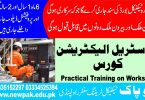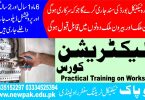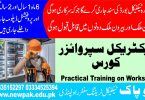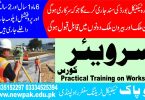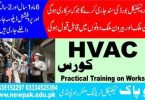
AC Technician Course In Rawalpindi Islamabad
The AC Technician Course is designed to equip students with the technical knowledge and hands-on skills required to install, maintain, and repair air conditioning systems across residential, commercial, and industrial environments. With demand for skilled professionals on the rise, this course lays the foundation for a stable and rewarding HVAC career.
Course Overview
This comprehensive program provides practical AC technician training focused on the fundamentals of refrigeration, installation, maintenance, and troubleshooting of air conditioning systems. Students will gain hands-on experience and build skills needed for practical AC repair training and electrical system understanding. The AC repairing course prepares learners for certification and real-world roles, making it a solid choice for those seeking professional development through AC technician classes and a recognized AC technician certificate.
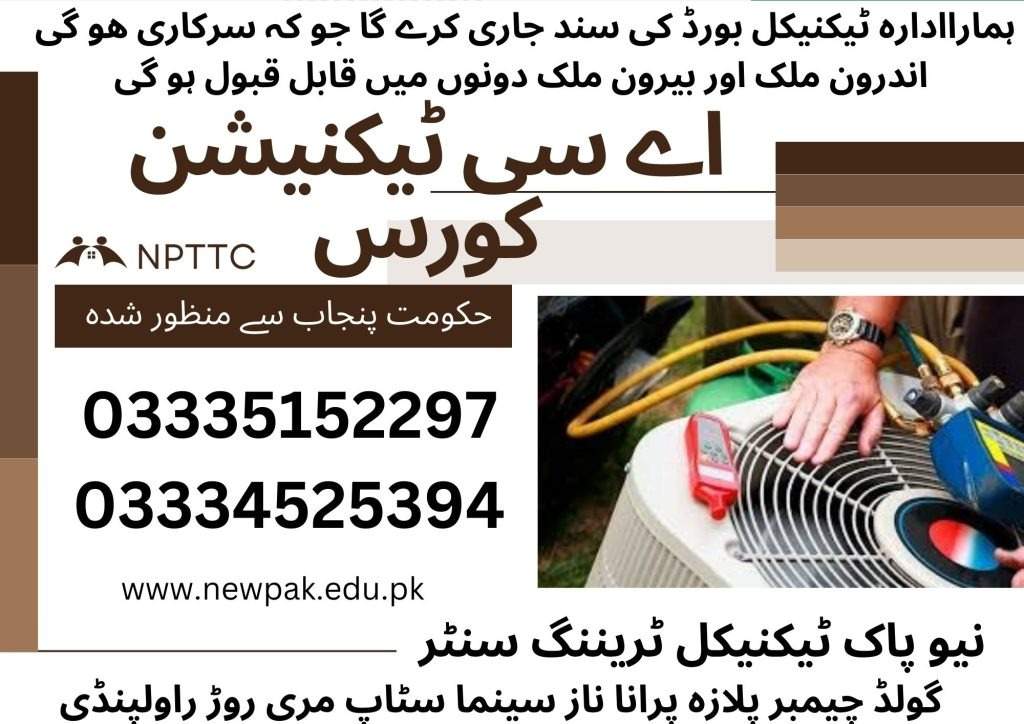
Course Duration
06 | Months
- Introduction to HVAC Systems
- Fundamentals of Refrigeration
- AC System Components
- Installation Procedures
- Maintenance & Troubleshooting
- Basic Electrical Systems
01 | Year
- Introduction to HVAC Systems
- Fundamentals of Refrigeration
- AC System Components
- Installation Procedures
- Maintenance & Troubleshooting
- Basic Electrical Systems
- Advanced Electrical Systems
- Smart Systems & Controls (IoT, BMS)
- Advanced Troubleshooting (Inverter AC)
- Energy Efficiency & Environmental Standards
- Customer Service & Soft Skills
- Final Practical Projects & Certification Prep
Course Outline (6 Months)
Introduction to HVAC Systems
Month 1
- Overview of HVAC applications in residential, commercial, and industrial environments
- Impact of climate, location, and structure on AC system design
- HVAC industry trends and modern technologies
Fundamentals of Refrigeration
Month 2
- Working principles of the refrigeration cycle (compression, condensation, expansion, evaporation)
- Basic psychrometric analysis for AC environments
- Environmental impacts of refrigerants (ozone depletion, GWP)
Overview of AC System Components
Month 3
- Types of compressors, condensers, evaporators, and expansion valves
- Understanding heat exchangers, filters, and dampers
- Component selection for small to mid-scale applications
AC Installation Procedures
Month 4
- Split-type, window-type, and basic central AC system installations
- Tools training: pipe bending, brazing, soldering
- Charging refrigerants safely and efficiently
- Safety standards and PPE protocols
Maintenance and Troubleshooting
Month 5
- Preventive maintenance techniques for efficiency
- Troubleshooting refrigerant leaks, compressor faults, and airflow problems
- Using gauges, thermometers, and leak detectors
Basic Electrical Systems
Month 6
- Ohm’s Law, voltage, resistance, and current fundamentals
- Reading basic wiring diagrams and component maps
- Identifying and repairing basic AC electrical faults
Course Outline (1-Year)
Months 1–6: Essential AC Technician Course In Rawalpindi Islamabad
(Same course content as the 6-month program but with more detail, role-plays, software demos, and assessments.)
Advanced Electrical Systems
Month 7
- Control systems, relays, capacitors, and contactors
- Motor starting techniques and wiring logic
- Reading complex HVAC schematics
Smart Systems & Controls
Month 8
- Smart thermostats and sensor integration
- Troubleshooting microprocessor-based AC units
- IoT in HVAC and automated control systems
Advanced Troubleshooting
Month 9
- High-level diagnostics for inverter systems
- Solving multi-split system problems
- Emergency repair practices
Energy Efficiency & Other Standards
Month 10
- Variable frequency drives (VFDs), ERVs, zoning systems
- Designing HVAC systems to meet Energy Star, LEED, ASHRAE standards
- Eco-friendly refrigerants and retrofitting
Customer Service and Workplace Skills
Month 11
- Handling client communications and feedback
- Conflict resolution and team coordination
- Professionalism, punctuality, service ethics
Final Practical Projects & Certification
Month 12
- Simulated installations and repairs in the workshop
- Preparation for HVAC Excellence or NATE exams
- Career support: licensing, job placement, professional growth
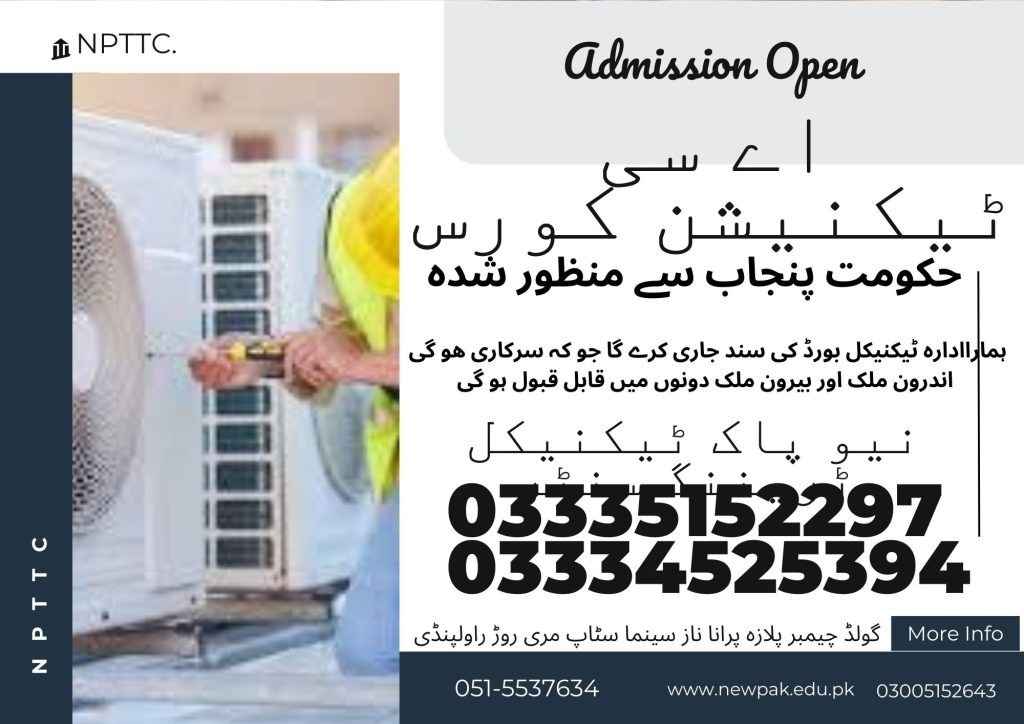
Career Opportunities
- AC Installation Technician
- HVAC Maintenance Technician
- Refrigeration and Cooling Systems Technician
- Inverter AC Repair Specialist
- Smart HVAC Systems Installer
- HVAC Electrical Technician
- HVAC Project
- Self-Employed AC Mechanic / HVAC Contractor
Conclusion
The AC Technician Course in Rawalpindi Islamabad offers hands-on experience and expert-led instruction to prepare students for real-world HVAC roles. With a strong foundation in AC technician training and AC repair training, graduates gain the skills and confidence needed to earn their AC technician certificate and excel in the field.

